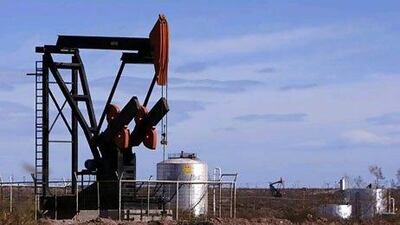Oil companies are not public services. But they are rarely suspected of not wanting to produce oil and gas.
But Argentina's centre-left government, under Cristina Fernández de Kirchner, the president, is accusing oil companies of not investing enough.
Amado Boudou, the vice president, has also weighed in, saying: "These companies should increase to the maximum their level of investments to obtain the energy needed by our country."
After its economic crisis in the early part of the last decade, Argentina imposed caps on domestic oil and gas prices, with exports fetching a maximum price of just US$42 per barrel. The predictable result was that oil companies milked their existing fields while new investment was made unprofitable. Last month, a scheme that partly eased export caps was abruptly scrapped.
Oil production has declined by a quarter since 1998, and the country's exports have shrunk sharply. Gas output has also been dropping and Argentina now has to import supplies, including opening a terminal for costly liquefied natural gas from as far afield as Qatar.
Yet Argentina has no shortage of resources. Its largest energy company, YPF, owned 58 per cent by Spain's Repsol, announced this year it had discovered almost 23 billion barrels of shale oil, 10 times the country's current reserves. Locked in a rock formation known as the Vaca Muerta (the Dead Cow), it requires an estimated $250 billion (Dh918bn) of investment and advanced technology to extract - both beyond the capability of Argentina.
The country is also believed to have the world's third-largest shale-gas reserves.
In January, a newspaper close to the government reported on plans to nationalise YPF, reversing its 1993 privatisation. In 2007, the government persuaded Repsol to sell a quarter of the company on easy terms to the Petersen Group, an entity with no energy experience but close ties to ex-president Néstor Kirchner, the Argentine president's late husband.
Last week, two Argentine provinces stripped YPF of production licences, with one governor declaring, "We have said enough." He called for domestic self-sufficiency. The planning minister admitted the annulments were "the product of a shared vision with the national government". Meanwhile, the state representative on the company's board voted that the last two years' earnings should be reinvested rather than used to pay dividends.
Yet YPF has been investing more than other oil companies in Argentina, and its production has performed better. Pressure tactics directed against the company, including allegations of tax violations, are reminiscent of Vladimir Putin's and Hugo Chávez's campaigns against foreign oil companies.
Indeed, Argentina should look to Venezuela if it thinks nationalisation is a recipe for increasing production.
Venezuela has officially the second-largest proved reserves of oil in the world, due to its deposits of sticky extra-heavy oil in the Orinoco area. But Mr Chávez's offensive against international investors and his demands for the state oil company, Petróleos de Venezuela, to fund extensive social programmes have caused output to fall by almost 30 per cent since 1998.
Threats, capricious policymaking and economic illogic are more likely to deter than entice investors.
There are lessons for the Middle East, too. Nationalisation has not really been an issue since the 1970s; policymaking has generally been opaque rather than erratic. But resource populism in this region has other features reminiscent of Latin America - subsidised fuels and a preference for state rather than private-sector or foreign investment.
New governments in Iraq, Egypt, Libya and elsewhere, as well as established oil producers, such as Algeria and Kuwait, need to see their natural resources as fruitful terrain for cooperation with the private sector - not, as Argentina's president sees them, as an arena for zero-sum confrontation.
Robin Mills is the head of consulting at Manaar Energy, and is the author of The Myth of the Oil Crisis and Capturing Carbon
twitter: Follow our breaking business news and retweet to your followers. Follow us


